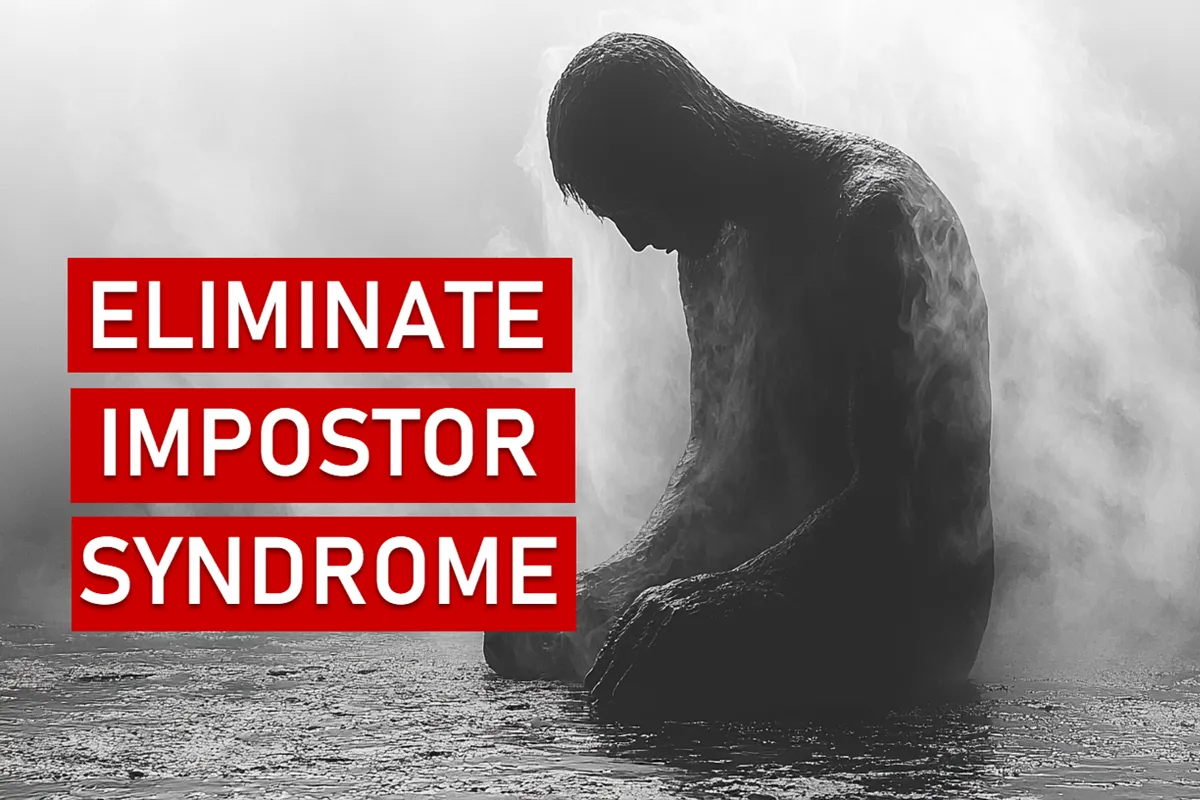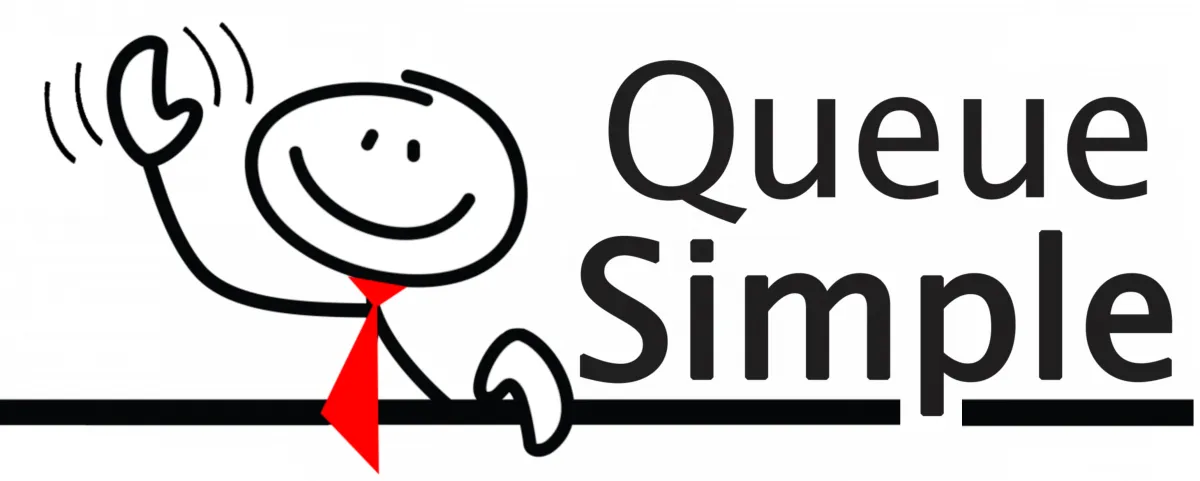
Unmasking the Impostor: Steps to Conquer Self-Doubt as an Entrepreneur
Unmasking the Impostor: 6 Steps to Conquer Self-Doubt as an Entrepreneur
Facing the Mirror: Recognizing Your Inner Critic

You've done it. You've taken the leap into entrepreneurship or you're already growing your business, and yet... Something doesn't feel right.
There's a nagging voice in your head that whispers, "You're not good enough." or "They'll find out you're a fraud."
If it sound familiar, you're not alone. Many entrepreneurs grapple with thoughts like this, and I'm no exception.
It's called impostor syndrome.
What Impostor Syndrome Is NOT
While many coaches try to explain Impostor Syndrome away logically, it doesn't work that way. Why? Simply put, it's not logical. Impostor Syndrome is a set of limiting beliefs and a false self-identity.
Defined as "the persistent inability to believe that one's success is deserved or has been legitimately achieved as a result of one's own efforts or skills"...
The bad news is: It can wreak havoc on your life and business. It's often felt as the fear of, "what if people think I don't really know what I'm doing," or "what if people think I'm a fraud?"
The good news is:
Because you're here now, and you're reading this post, I'll show you how you can overcome it... Even if you don't believe you can right now.
The Sneaky Saboteur in Your Mind
Impostor syndrome is like a stealthy saboteur, quietly undermining your confidence and success. It makes you question your abilities, despite evidence of your competence. This mental roadblock can hold you back from reaching your full potential as an entrepreneur.
Keep reading...
For years I felt like an outsider at every mastermind I attended as a guest. I'd find myself shrinking into the background, convinced I hadn't earned my place there. The self-doubt was crushing.
Picture this: It's 2015, and I'm at this exclusive mastermind.
The entry ticket? A thriving business.
Mine? A mere thousand dollars that year – barely a footnote compared to the success stories around me.
I remember standing in the lunch line, feeling completely out of place. The guy behind me says, "Hi, I'm Michael, what's your name?"
Simple enough, right? And yet my response was pure deflection: "Oh, I'm Jon... I'm with that guy over there. You probably want to talk to him." I tried to direct attention elsewhere. I was just getting started in my business and my full-time job felt like this shameful secret I needed to hide.
Yet Michael...
He Didn't Take The Bait
Instead, he asked, "What do you do with him?" And then, surprisingly, he invited me to lunch with him and his wife, Kayla.
He taught me an email marketing secret I still use to this day. Maybe I'll share it with you sometime.
Anyway, my path crossed again with Michael many years later. I said, "Hi Michael I remember meeting you a few years ago." He said, “Hi Jon, how have you been?” I was shocked he remembered my name… I thought, why would he?
Michael and I ended up crossing paths several times between 2018 and today. In fact, one conversation with Michael created ripples that led you here, reading these words right now. That’s a story for another time.
What matters now is that what I'm about to share about unmasking and eliminating imposter syndrome... Well, I learned it from my friend Michael, and I think they'll help you, too.
Before I share the steps, here's...
Why It Matters: The Cost of Self-Doubt

Self-doubt isn't just uncomfortable; it's expensive in time, money, energy, resources, and emotion.
It can lead to:
Missed opportunities
Delayed decision-making
Undervaluing your products or services
Burnout from overworking to "prove" yourself
By addressing impostor syndrome, you don't just feel better – you set yourself up for greater success.
When I finally overcame that self-doubt, everything changed. I could finally be myself, without constantly second-guessing every move or decision. My business grew faster because I wasn't holding myself back anymore. Suddenly, I could connect with new people authentically, take calculated risks that used to terrify me, and step into bigger opportunities with confidence.
Here are the exact steps I learned from Michael to break free from impostor syndrome.
Unmask the Impostor in 6 Simple Steps
1. Spot the Imposter: Identify Your Limiting Beliefs
First, catch that sneaky saboteur in action. What thoughts make you doubt yourself? Write them down. Here's a few that come to mind:
"My business isn't legitimate until I quit my day job."
"Real entrepreneurs don't struggle with [tech, writing, getting new clients, etc] like I do."
"Once they see my website, they'll know I'm not a real professional."
"I'm too slow – everyone else seems to launch faster and easier."
"I should have everything figured out by now."
"Other business owners don't get overwhelmed like this."
"My family probably thinks this is just another failed attempt."
"If I was truly good at this, I wouldn't need help."
"I'm too far behind to catch up with everyone else."
"Success comes naturally to others – I have to work twice as hard just to keep up."
There are all beliefs I have had myself. Many of our clients at QueueSimple have shared similar beliefs with me from time to time as well.
Do any of these sound familiar? They aren't just uncomfortable – they're the exact barriers standing between you and your next level of success.
2. Trace the Roots: Understand the Origins
Now, play detective.
Where did these beliefs come from? Maybe a critical parent, a competitive school environment, or societal pressures. Understanding the source can help you see these beliefs for what they are – not facts, but learned thoughts.
3. Face Your Fears: What's Really Scaring You?
This question helps reveal underlying fears or anxieties that may be reinforcing the belief, even if it's not serving you well.
If you let go of these beliefs, what are you afraid might happen?
Are you scared of failure?
Success?
Responsibility?
Naming your fears takes away some of their power.
4. Reality Check: Do You Really Believe That?
Time for some tough love. Look at each belief and ask:
Is there evidence to support this?
Is there evidence against it?
If a friend told you they felt this way, what would you say?
Often, our beliefs don't stand up to scrutiny.
5. Own Your Story: Whose Belief Is It Anyway?
Sometimes, we carry beliefs that aren't even ours. They're handed down from family, friends, or society. Ask yourself: "Is this really my belief, or am I carrying someone else's?" or "Whose belief is this anyway?"
6. Rewrite the Script: Choose Empowering Beliefs
Now for the fun part.
For each limiting belief, create a new, empowering one.
For example:
Old: "I'm not experienced enough."
New: "I'm learning and growing every day. My fresh perspective is valuable."
The Payoff: Why This Matters for Your Business
Tackling impostor syndrome isn't just personal growth – it's a business strategy.
Here's what you gain:
Confidence in Decision-Making: Trust your gut and move faster.
Better Networking: Connect authentically without fear of being "found out."
Increased Resilience: Bounce back from setbacks without questioning your worth.
Improved Leadership: Lead with authenticity and inspire your team.
Financial Growth: Charge what you're worth and pursue bigger opportunities.
Taking Action: Practical Steps to Conquer Self-Doubt
Daily Reflection: Spend 5 minutes each morning identifying and challenging negative thoughts.
Success Journal: Write down your achievements, big and small. Review it when doubt creeps in.
Feedback Loop: Ask trusted mentors or colleagues for honest feedback. Compare it to your self-perception.
Skill Building: Identify areas where you feel insecure and actively work to improve them.
Celebrate Wins: Acknowledge your successes, no matter how small. It builds confidence momentum.
Fail Forward: Reframe failures as learning opportunities. What can you take from each setback?
Visualize Success: Regularly imagine yourself succeeding. It primes your brain for success.
The Bottom Line: Your Success Awaits
Remember, feeling like an impostor doesn't make you one. By challenging your limiting beliefs and embracing your capabilities, you're not just unmasking the impostor – you're unleashing your true potential as an entrepreneur. Your unique journey, experiences, and perspective are valuable. It's time to own your success and lead with confidence. The business world is waiting for what only you can bring.
If you want to eliminate impostor syndrome once and for all, my friend Michael can help you, too. Click Here >>
About Michael Stevenson, MNLP, MHT, MTT

Michael is a best-selling author, business coach, success coach, and international speaker with impressive credentials and experience.
He has helped nearly 200,000 people around the world learn to use the power of the mind to turn off the "autopilot," take hold of the controls, and create the life of their dreams.
Michael started Transform Destiny in the year 2000 with a deep passion for helping people transform their individual destinies, after transitioning from an unsatisfying field in computer programming.
Now, he heads Transform Destiny, the top NLP, hypnotherapy, and coaching training company in the world, and our trainers teach these valuable skills all over The United States of America, as well as other countries. You can read more about Michael on his bio page.
FAQs: Addressing Common Concerns
Q: Is it normal to feel like an impostor even after achieving success?
A: Yes, many successful entrepreneurs still experience these feelings. Success often brings new challenges and expectations.
Q: How do I know if it's impostor syndrome or if I'm genuinely underprepared?
A: Look at objective evidence. Have you successfully completed similar tasks before? Are you meeting your goals? If yes, it's likely impostor syndrome.
Q: Can impostor syndrome ever be beneficial?
A: While generally limiting, a touch of self-doubt can keep you humble and motivated to improve. The key is balance.
Q: How do I help my team members who might be experiencing impostor syndrome?
A: Create a culture of open communication, provide regular constructive feedback, and acknowledge their contributions.
Q: Are certain personalities more prone to impostor syndrome?
A: It can affect anyone, but perfectionists and high achievers are often more susceptible.
In case you missed it:

Overcome self-doubt and boost your confidence as a business owner. Discover 5 effective strategies to beat imposter syndrome.





